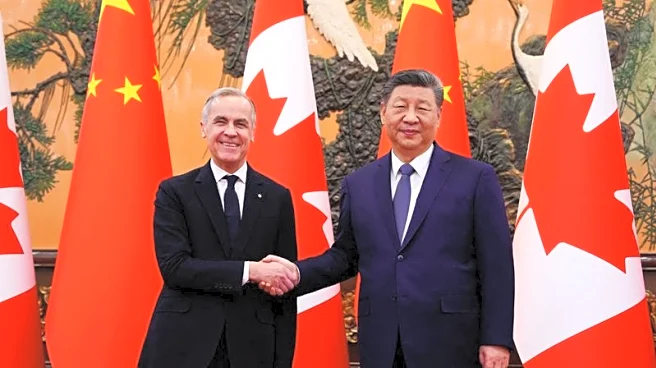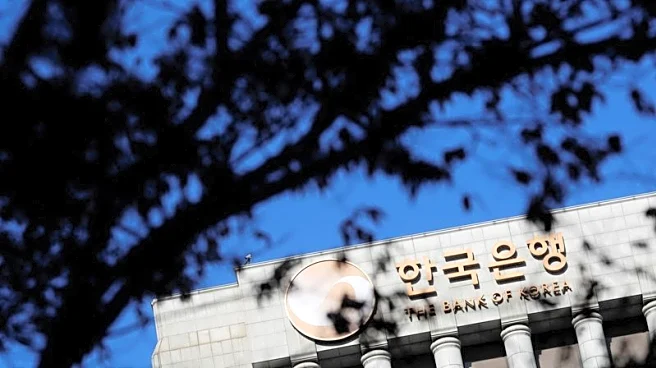What's Happening?
President Donald Trump has nominated E.J. Antoni, an economist from the Heritage Foundation, to head the Bureau of Labor Statistics (BLS). This decision follows the abrupt dismissal of the previous commissioner, Erika McEntarfer, after a jobs report released on August 1 was criticized by Trump as 'RIGGED.' The report indicated a gain of only 73,000 jobs in July, with significant downward revisions for May and June. Trump announced Antoni's nomination on his Truth Social platform, emphasizing the need for 'HONEST and ACCURATE' economic data. Antoni has been vocal about his criticisms of the BLS's data collection methods, describing them as outdated and advocating for a comprehensive overhaul.
Why It's Important?
The appointment of E.J. Antoni to the BLS is significant as it reflects President Trump's ongoing influence over economic policy and data reporting. Antoni's association with the Heritage Foundation and his critical stance on current BLS practices suggest potential shifts in how economic data might be collected and reported. This could impact stakeholders ranging from policymakers to businesses that rely on BLS data for economic forecasting and decision-making. The move has sparked controversy, with critics questioning the grounds for McEntarfer's dismissal and the implications of politicizing economic data collection.
What's Next?
Antoni's nomination is expected to lead to changes in the BLS's approach to data collection, potentially aligning it more closely with conservative economic principles. This may involve revising methodologies and reporting standards, which could affect the perceived reliability of U.S. economic data. Stakeholders, including economists and political leaders, will likely monitor these developments closely, as they could influence economic policy and public trust in government statistics.
Beyond the Headlines
The nomination of Antoni may have deeper implications for the role of ideology in government institutions. His involvement in the Heritage Foundation's Project 2025, which aims to overhaul government structures, suggests a broader agenda to reshape federal agencies according to conservative values. This raises questions about the balance between political influence and objective data collection in public institutions.











